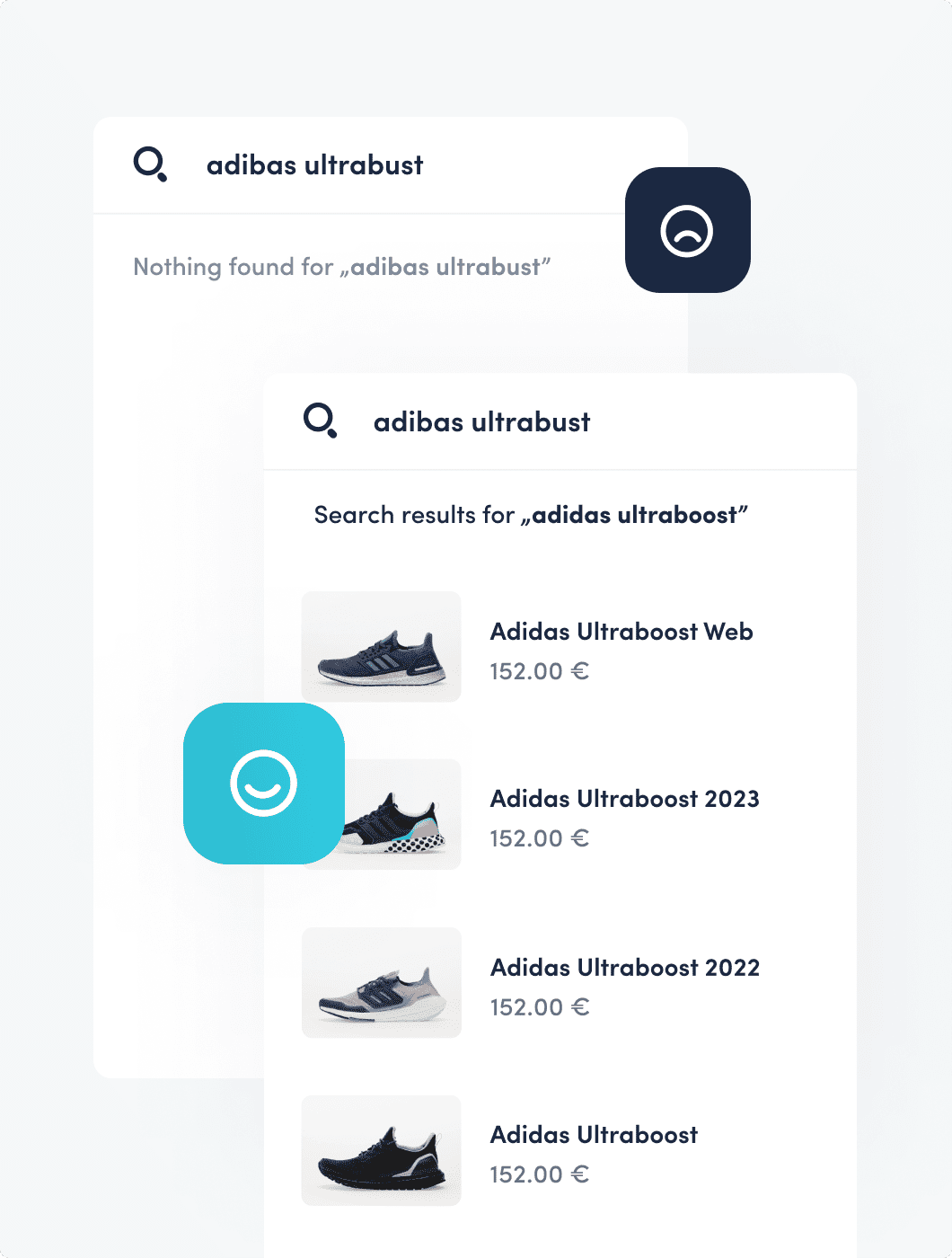
What is a website search engine?
Website search functionality allows users to search a given site’s content or product catalogs with relevance and speed. A great website search feature is tailored to the specific site. It constantly indexes the website to ensure that users can easily access the latest content.
Most websites install a search bar on their site and call it a day. However, a truly helpful site search is much more than just having a search box.
Who uses an internal search engine
Let's take a look at some of the industries that are actively using site search:
E-commerce & retailers
With an effective search function, e-commerce stores can delight consumers by allowing them to quickly connect with the content they need while capturing valuable information about the content and products visitors are most interested in.
Education & e-learning
Online learning platforms have thousands of courses and millions of users. Having a site search function allows users to search for relevant courses that align with their interests quickly. It also increases page views and enrollments.
Libraries & news sites
Users can navigate a massive database of news articles by using filters and facets. For libraries, readers can find their favorite author or a specific book in a few seconds, even if they don't know the full name.
Media & Entertainment
Entertainment websites like Netflix, Spotify, and YouTube offer a sophisticated search capability to surface the right content for their users. These platforms use various machine learning and recommendation algorithms to drive personalized search experiences.
Why website search engine matters in e-commerce
Convenience
Sites like Google, Amazon, or YouTube are an integral part of our online experience. Therefore, when it comes to searching websites for content, products, or information, users expect the same level of convenience and speed that these websites offer.
Usage
Studies suggest that visitors that use search are 1.8 times more likely to find what they’re looking for and convert into paying customers. Here’s how internal search tools can have a powerful impact on your e-commerce website:
Improved user experiences
An effective search engine software combines fast, relevant search results with a great digital experience that allows users to filter results and browse different product categories. This ease of discoverability leads to positive interactions between visitors and your content.

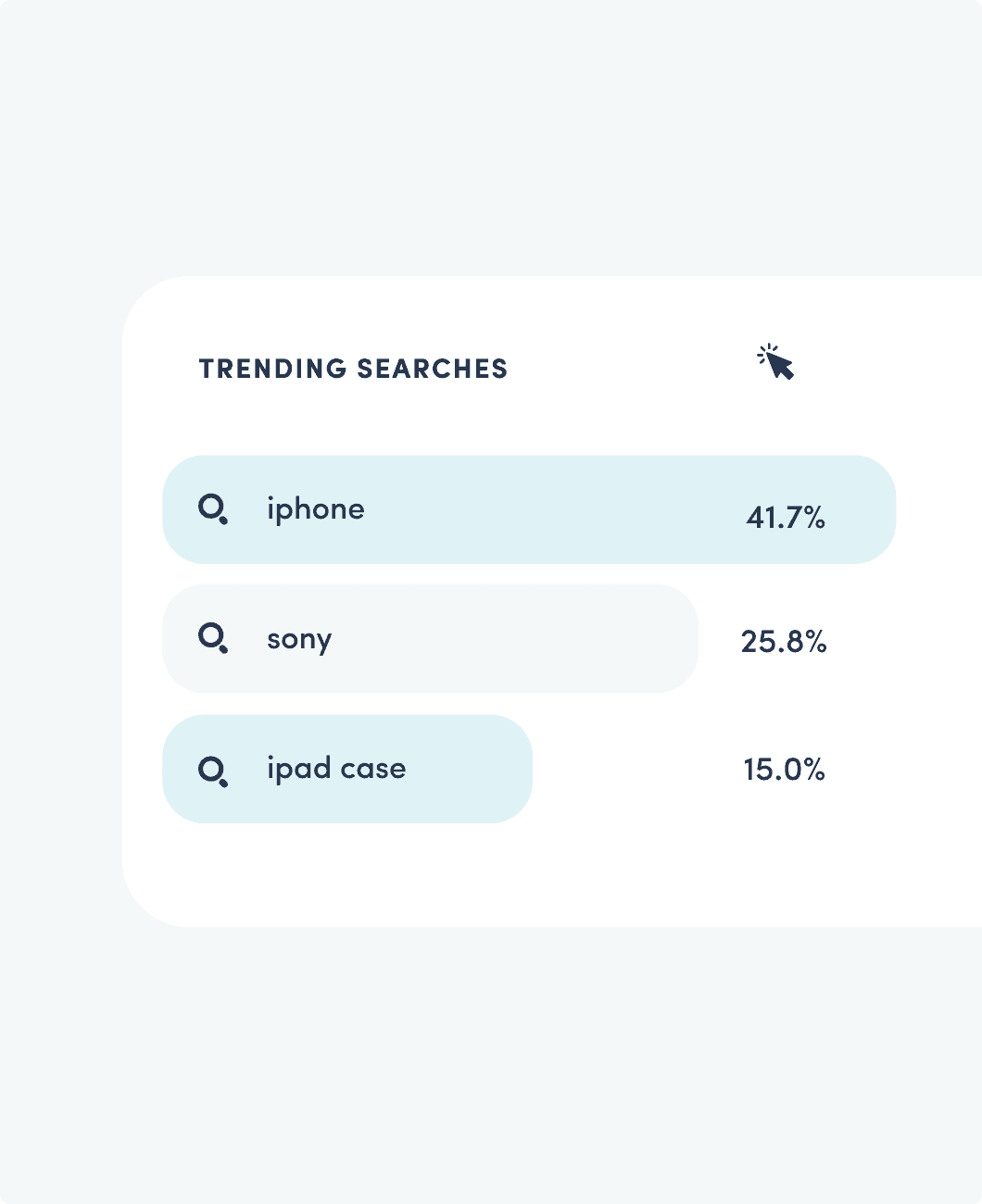
Lower bounce rate
Around 30% of a website’s visitors will leave and opt for a competitor’s site after an unsatisfactory search. By offering a fantastic search experience, your website can be the one visitors turn to after they leave a competitor’s site empty-handed.
Better conversions
By helping visitors find what they’re seeking the first time around, you can dramatically increase sales and engagement. Forrester research states that up to 43% of visitors instantly navigate to the search box when they visit a website.
Enhanced search engine optimization
Effective site search improves the overall user experience of your website, which is something Google values when ranking websites. It also necessitates a logical, hierarchical organization of content, which helps Google Search understand your core products and topics.
Increased customer insights
Site search tells you what people are searching for that you might not have expected. This gives you ideas for new product offerings, featured products, blog posts for inbound marketing initiatives, different search queries for your products, and search volume.
Get started with Luigi’s Box Search
Luigi’s Box search can help you sort and rank search results according to the preference of each customer, dealing with grammatical errors, typos, and synonyms. Book a demo call with one of our experts to learn how our website search can benefit your online business.
Is website search software worth it?
A website search engine not only provides accurate search suggestions but also guides users as they explore a site’s content. This way, it helps them discover content they might not have even known they were interested in.
Conversion rates through site search can be up to 50% higher than the average. Therefore, a good search solution brings a high ROI, and e-shops that don’t have it are missing out on a lot of revenue.
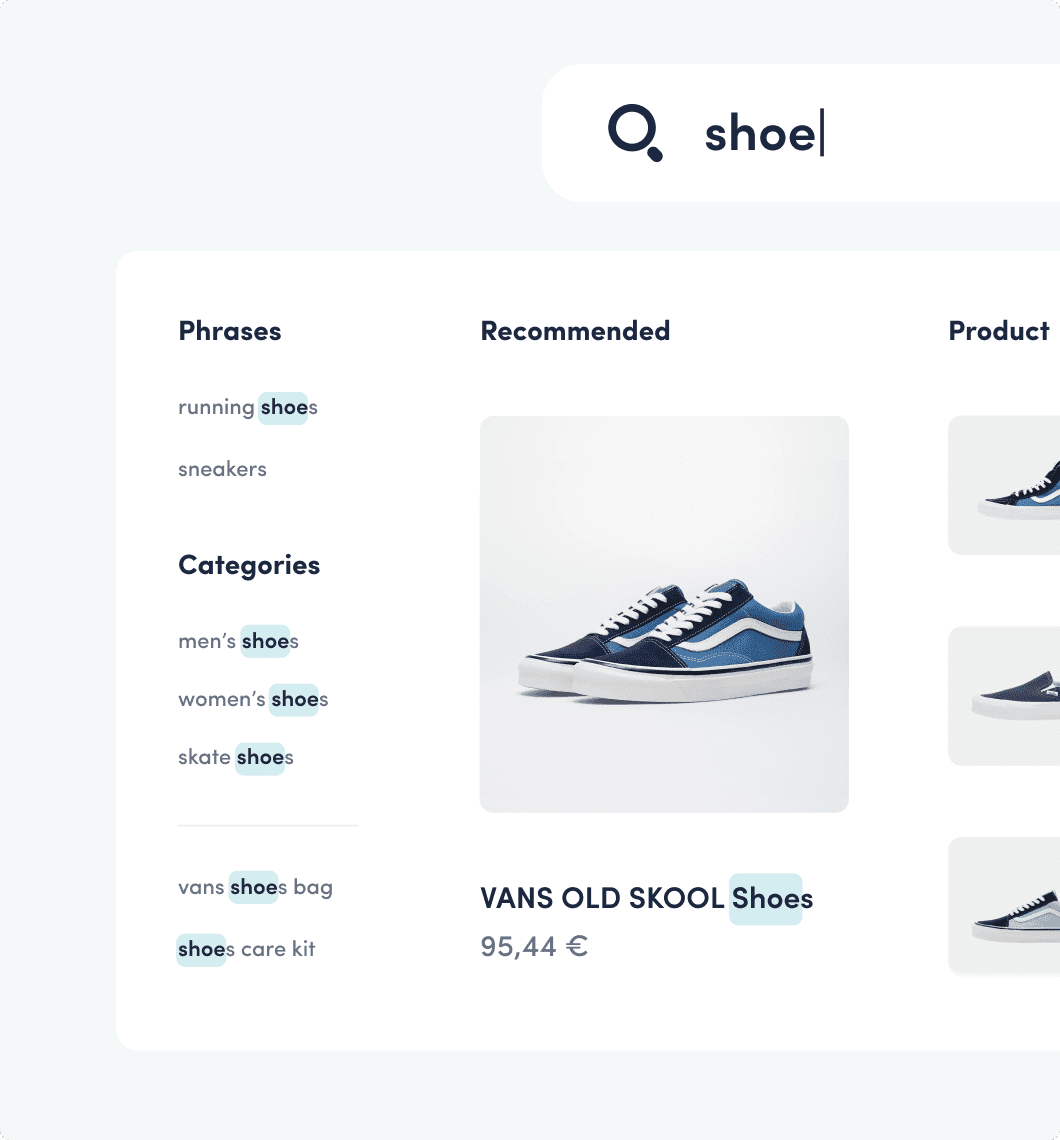
Who are the industry leaders?
Here are some major search engines based on G2 ratings:

Luigi's Box
Luigi’s Box is a comprehensive product search and discovery solution specifically designed for e-commerce businesses.
It leverages artificial intelligence to give your visitors the ultimate tools to discover your products as efficiently as possible.
Algolia
Algolia Search offers a number of features for e-commerce businesses, such as search autocomplete, typo tolerance, synonyms management, filters, and facets, to help customers quickly find relevant products on your site.
AddSearch Site Search
AddSearch enables you to create quick search results with the ability to customize result fields and boost search availability. The user dashboard lets you control all your inventory searches. You can also create smart searches.
G2’s E-Commerce Search Relationship Index
Discover the factors influencing product relationships. See the chart below for insights on ease of business, support quality, and recommendations from our customers.
- Ease of Business
- Likely to Recommend
- Quality of Support
- Other Factors
-
Ease of Business: 3.29
-
Likely to Recommend: 1.43
-
Quality of Support: 3.34
-
Other Factors: 1.71
-
Ease of Business: 3.43
-
Likely to Recommend: 1.43
-
Quality of Support: 3.4
-
Other Factors: 1.25
-
Ease of Business: 3.29
-
Likely to Recommend: 1.36
-
Quality of Support: 3.27
-
Other Factors: 1.45
-
Ease of Business: 3.22
-
Likely to Recommend: 1.29
-
Quality of Support: 3.1
-
Other Factors: 1.67
-
Ease of Business: 3.39
-
Likely to Recommend: 1.41
-
Quality of Support: 3.47
-
Other Factors: 0.75
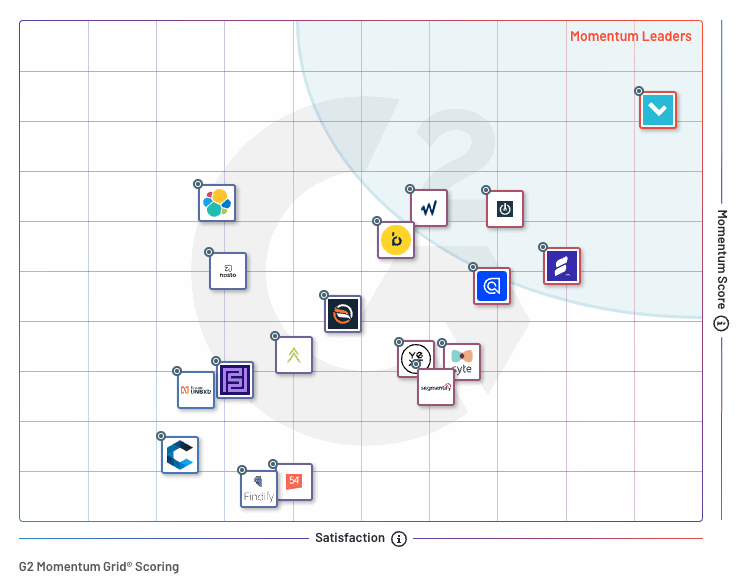
Gain momentum with us!
The Momentum scores for E‑Commerce Search display each product’s Momentum score on the vertical axis and Satisfaction score on the horizontal axis, based on G2’s algorithms. Products within the shaded area have a top 25% Momentum Grid® score.
See the results our clients get
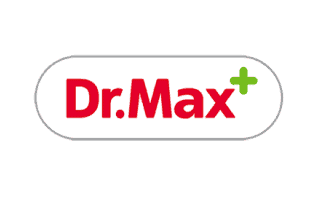
conversion rate of selected product segment

search conversion rate

average conversion rate
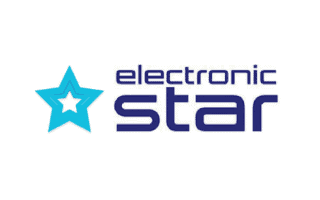
on top of standard yearly revenue
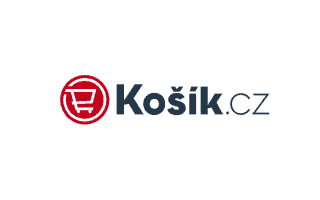
search conversion rate
Talk to an expert.
Schedule a demo call to discuss how we can boost your business with smart e-commerce solutions.
Book a Demo CallStart with Luigi's Box Analytics to identify flaws in your search
Luigi’s Box Analytics provides you with a dashboard that offers super quick visual feedback about the state of your search, helping you understand:
- Whether your search leads to conversions
- The number of “no results” your customers get
- The number of searches that lead to irrelevant content
- And much more!
You can try the demo with sample data to get a better understanding of what it is about.
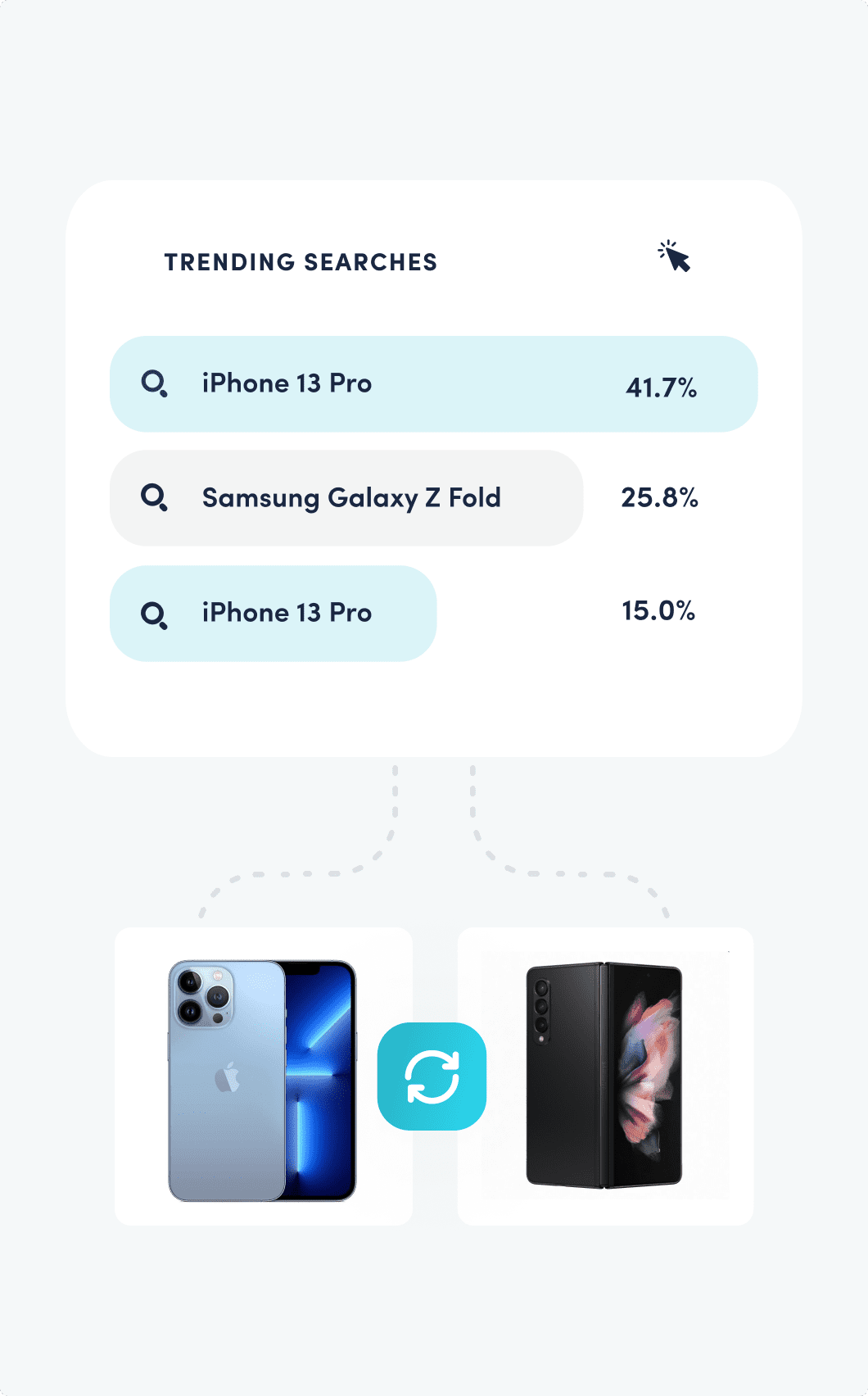
Luigi's Box is compatible with any website
There are three ways how to deliver your product data to Luigi’s Box.
Try our tools for free
Want to measure the performance of your e-shop and try advanced search and recommender features? We offer you a 30-day trial!
Frequently asked questions
What is a website search engine, and how it helps?
Site search is the internal search functionality on a website that enables users to search a given website’s content or product catalogs with speed and relevance. When a user expresses a need as a query or search term, the website search engine offers its response as a set of results. The search experience ends when the user has found what they’re looking for.
Why is a website search engine so important in e-commerce?
A site search tool allows users to quickly and easily find relevant products on an e-commerce site. As a result, it helps brands improve their conversions, revenue, and user satisfaction. It is also the best way for visitors to tell you what they’re looking for and to allow you to tailor the website to the visitor’s specific needs.
How to choose the best website search engine provider?
Here are a few key features that your site search tool must have:
- Autocomplete
- Dynamic filters
- Artificial intelligence
- Contextual search
- Geo search
- Semantic search
How to implement a website search engine on my website?
The most obvious way is to build a website search engine on your site. However, it’s the most expensive and time-consuming option. Building your own site search engine gives you full control over its technology and functionality. However, it requires substantial know-how and personal maintenance.
A much better option is to work with a 3rd party vendor that provides you with an “out-of-the-box” experience. You get to enjoy simple implementation, ample features, and quality support. Purchasing a site search solution like Luigi’s Box Search is a smart choice that will ensure you get a tool that’s optimized to your needs and that doesn’t leave your visitors frustrated.
